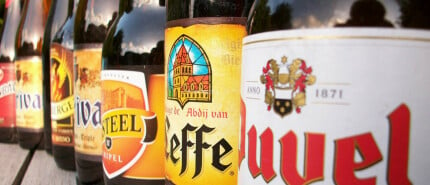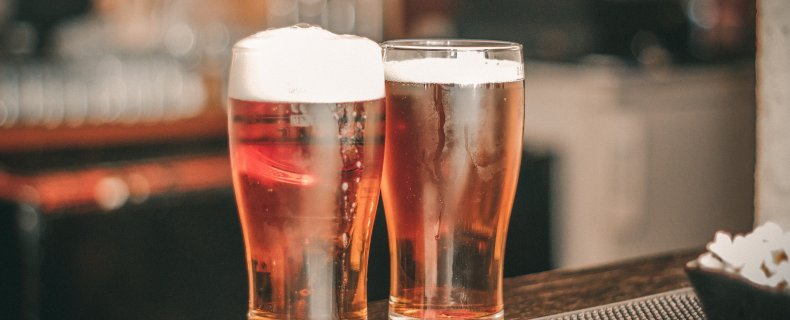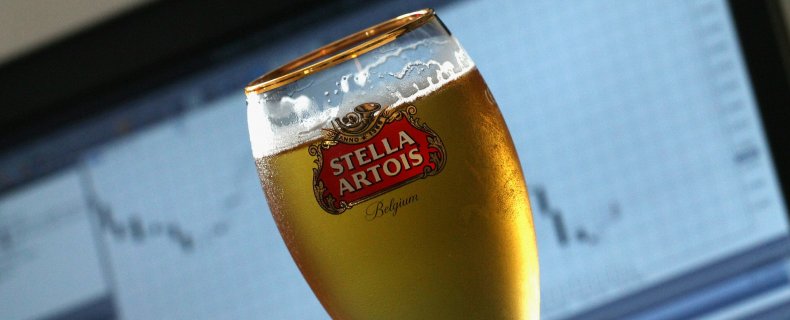What the beer consumption is useful for?
Beer is the third most popular drink in the world, after water and tea and the leader among the choice of alcoholic beverage. The Chinese are the world’s largest beer drinkers – in 2010 they drank 45 billion liters of beer, surpassing American, Japanese and German brewers – all countries with a strong reputation for beer.
What is beer? A German would say that this is a mixture of barley malt, hops, yeast, and water, with no additives other than sugar, perhaps. In fact, according to the law in Germany, the word ‘beer’ is used to describe only that beverage. However, elsewhere in the world, beer can be referred to as an alcoholic drink made from the following ingredients:
-water
– a source of starch such as malt or non-malt beans
– yeast for fermentation
– herbal aromas such as hops, wormwood, ginger, fruit and others.
– May contain sugar or additives to clarify the liquid.
Nutrients in beer Beer is 90% water but also contains soluble fiber, traces of calcium, iron, magnesium, phosphorus, potassium, sodium, zinc, copper, manganese, selenium, fluoride and silicon. The alcohol content usually ranges between 4-6%. Beer is a true companion to meeting friends and leisure. Besides helping us cool off on the hot summer days, it turns out that there are a number of great benefits from it. According to recent studies, drinking beer in moderate amounts (1 standard beverage 3-4 times a week) may have positive qualities:
Improves digestion Beer, particularly dark, contains about 1 gram of soluble fiber (as opposed to wine that does not contain it). Fibers play an important role in the passage of food through the intestinal tract and their deficiency can cause gastrointestinal disorders such as constipation or diarrhea.
Increases levels of vitamin B
The beer contains several vitamins from group B – B1, B2. B6 and B12. A Dutch study found that the levels of vitamin B6 in beer are 30% higher than those who do not drink and twice as high as those who drink wine. In addition, beer is a generous source of vitamin B12 – an anti-anemic factor not found in many foods.
A cure for insomnia The presence of lacto Lavin and nicotinic acid in beer are responsible for its ability to stimulate sleep. Hops can also be found in some herbal tea blends that fight insomnia.
Reduces blood pressure High blood pressure can cause a number of health problems, but beer can reduce hypertension. A Harvard University study found that people who drink beer in moderate amounts are less likely to develop high blood pressure than those who drink other alcoholic beverages.
Reduces the risk of heart attack Beer for a Healthy Heart White is the wine that gets all the glory as a means to reduce the risk of cardiovascular disease, but it turns out that beer can be just as good at it. Italian researchers have found that people who regularly drink beer have a 40 to 60% lower risk of heart attack than those who do not drink beer. It is right to say – it is about 500 ml, 5% alcohol a day! Reduces “bad” cholesterol
Beer fibers can contribute to lowering LDL cholesterol levels. A 2016 study presented in the Scientific Sessions of the American Heart Association examines 80,000 healthy adults of Chinese origin and finds that moderate beer drinking is associated with a decrease in “bad” cholesterol that causes arteries to thicken, and also reduces cholesterol in the liver (probably due to the ethanol content). Another study found that excessive intake eliminates this benefit.
Prevents Type 2 diabetes
Dutch researchers analyzed 38,000 men and found that when they did not overtake alcohol, they were significantly less likely to be diagnosed with type 2 diabetes. Increased alcohol consumption over time does not reduce this risk, so moderation here is a keyword!
Healthy kidneys
Beer maintains kidney health. A Finnish study has found that it, unlike other alcoholic beverages, works well on the kidneys. According to the researchers, every bottle of beer that a person drinks every day reduces the risk of kidney stones by about 40%. Researchers can not find out what the exact relationship is, but suggest that high fluid intake not only leads to frequent visits to the toilet, but can also assist in the proper functioning of the kidneys. Besides, hops in beer contribute to delaying calcium release from the bones – and its possible absorption by the kidneys in the form of painful stones.
Remedy for Cold Drinking hot beer is an excellent cure for a cold. When warmed, barley in beer improves blood circulation and assists breathing at overload. It also provides relief of joint pain and increases immunity. To do this, warm the beer in a water bath and add 4 teaspoons of honey to it.
Strengthens bones
A 2009 study concludes that silicon found in beer is important for the growth and development of bone and connective tissue and contributes to higher bone density. According to a study carried out at Tufts University (USA), boys who have adhered to one or two drinks had a 4.5% higher bone density than those who did not drink beer. At the same time, consumption of more than two beers per day is associated with up to 5.2% lower density, according to the study. A study published in the “Master Brewers Association of the Americas” shows that moderate beer drinkers have a 38% lower risk of osteoporosis than non-drinkers. Another study, published in “Osteoporosis International”, shows that moderate beer drinkers have a 20% lower risk of hip fractures compared to non-beer.
Improves memory, cognitive and mental health
According to some studies, moderate beer consumption reduces the risk of developing Alzheimer’s disease and dementia. The reasons for this correlation are not well understood.
Relieves stress
Researchers at the University of Montreal have found that two glasses of beer per day significantly reduce worries and work-related stress and increase feelings of well-being.
Makes the skin more beautiful Good news for women! Some vitamins in the beer act regenerating the skin and fight pigmentation. It also makes the skin smooth.
It is important to note that the availability of these beneficial effects does not justify the excessive consumption of beer! Using beer does not necessarily mean drinking it. You can use beer in cooking. This will give the dishes a fine, sweet taste of hops and malt. In addition, when alcohol, including beer, is exposed to heat, part of it evaporates. Here are some ways to use beer for cooking.
-Add dark beer to the salad dressing.
-Add a little beer to lighter macaroni and cheeses.
-Add beer to steamed vegetables such as green beans, onions, and more.
-Add beer to marinades for beef, pork and chicken, and more. Keep in mind that the effects of alcohol vary from person to person, how much you drink, how often you drink, age, health, and family history. Excessive consumption of beer (and alcohol in general) can have negative consequences, including increased risk of internal organs (such as liver), abuse, aggressive behavior, crime, accidents and addiction! Smooth and elastic.







